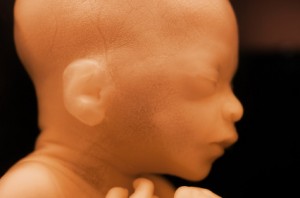 SEOUL, South Korea – South Korean authorities have seized thousands of pills billed as Viagara-style performance enhancers that contain the powdered flesh of babies. The pills, smuggled in from China are apparently a part of a burgeoning home-business in parts of rural China.
SEOUL, South Korea – South Korean authorities have seized thousands of pills billed as Viagara-style performance enhancers that contain the powdered flesh of babies. The pills, smuggled in from China are apparently a part of a burgeoning home-business in parts of rural China.
South Korea’s Customs service released a statement on Monday in which it said 17,500 of the pills had been confiscated from international mail and tourists’ luggage. Some of the 35 smugglers arrested said they told customs officials they thought the capsules contained ordinary stamina boosters and did not know what ingredients were used in the manufacturing process.
The ghoulish capsules are produced in northeastern China in a gruesome barbaric process by which babies’ bodies are chopped and dried on stoves and then pulverized to a powder. Fearing possible diplomatic friction with Beijing, South Korean officials refused to speculate who made the capsules or where they came from.
The pills, typically smuggled in by ethnic Koreans living in northern China, also contain “super bacteria” that is harmful to human health. The Wall Street Journal reports that South Korea began cracking down on the drugs last year after a television network aired a documentary accusing Chinese pharmaceutical companies of collaborating with abortion clinics to make the pills from human fetuses and the remains of dead infants.
Demand for the pills is prompted by the belief that the fetus is a “tonic” for disease. Consumption of human placentas is common in China, where it is believed to help revive blood supply and circulation. A report in the Global Times, a tabloid published by the official People’s Daily, said the human flesh pill were used to enhance sexual performance.
This South Korean customs announcement comes just weeks after Health Ministry regulators in China suspended sales of 13 drugs after finding they were encased in gelatin capsules that contained excessive levels of chromium. According to China’s state broadcaster, CCTV, the toxic drug capsules were believed to originate from factories in China’s coastal Zhejiang province and had been made using scraps of leftover leather.
China ordered an investigation into the production of drugs made from dead fetuses or newborns last year. But that country’s track record is not good at all when it comes to regulating such things. At a time when China’s economy is booming, it still proves unwilling to regulate itself.
 Off The Grid News Better Ideas For Off The Grid Living
Off The Grid News Better Ideas For Off The Grid Living



